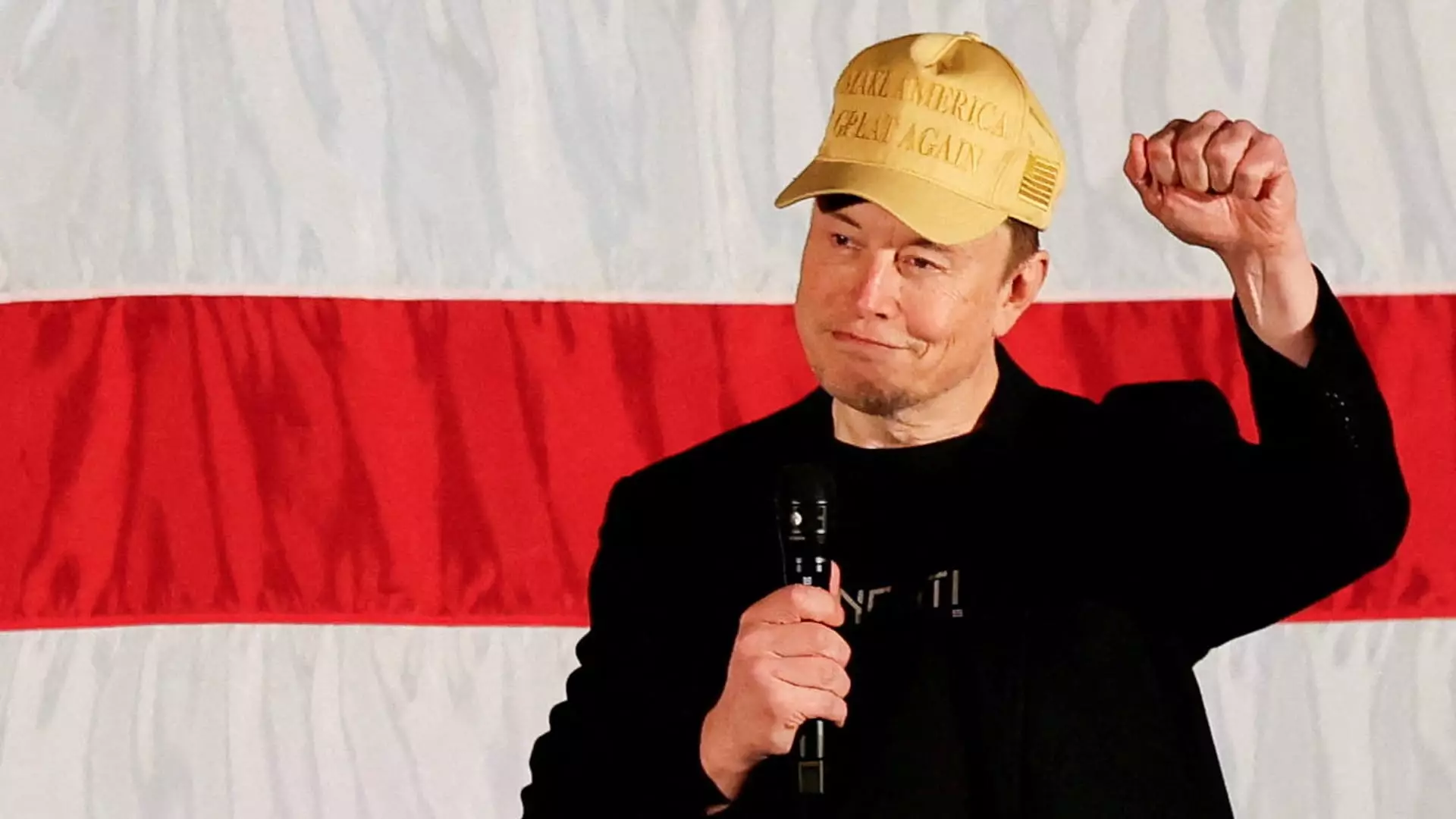Elon Musk has never been one to shy away from bold and unconventional ventures. In a recent event in Harrisburg, Pennsylvania, he announced an astonishing initiative: donating $1 million every day to registered voters who sign a petition for his pro-Trump political action committee. This unexpected announcement has stirred up considerable controversy and raised essential questions about ethics, legality, and the role of wealth in politics.
During his speech, Musk claimed he had a surprise for the audience, declaring that the rewards would start immediately and continue daily until Election Day. He called on John Dreher, a man in attendance who had signed the petition, to receive a giant check as a symbol of his novel approach to drive voter registration. Musk’s casual demeanor and the playful nature of his surprise seemed to invigorate the assembled crowd, emphasizing his personal connection to his supporters as he urged them to get involved in the electoral process. “I think this is kind of fun, and you know, it seems like a good use of money basically,” Musk stated.
Yet, this seemingly light-hearted initiative raises serious ethical concerns. Offering cash incentives for signing a political petition sharpens the line between civic engagement and potential manipulation through financial motivation. While Musk may view this as an entertaining way to encourage participation, critics fear it undermines the integrity of the electoral process.
The Legal Implications
Legal experts were quick to analyze Musk’s giveaway, suggesting that his financial incentives may infringe upon federal election laws. According to Rick Hasen, a law professor at UCLA, the initiative raises alarms because federal law explicitly prohibits paying individuals to vote or incentivizing voter registration. This cash-for-votes notion suggests a troubling precedent where wealth could dictate political engagement, effectively allowing those with deeper pockets to influence the democratic process.
Hasen emphasized, “Congress has determined you should not be able to sell your vote to the highest bidder, and we should not have the political process distorted by people with the most wealth who may try to get you to vote in a certain way.” The notion that wealth could be leveraged for political advantage sharply contradicts the principles of equal representation and fair elections, calling for a closer examination of Musk’s initiative.
Political Maneuvering and Controversies
Musk’s endorsement of Donald Trump and its consequential effects have fueled a complex narrative regarding his political motivations. By framing Pennsylvania as the “linchpin” state for the election, Musk aligns himself with partisan efforts while simultaneously courting controversy with remarks about government inefficiency. With an extensive history of business ties to government funding, his public disdain for federal agencies raises eyebrows. During his speech, Musk expressed his mistrust of government, stating, “Even if I’m in the government, don’t trust the government.” This contradictory posture creates a paradox where Musk presents himself as an outsider seeking political reform while benefiting from the very systems he critiques.
Furthermore, Musk’s past inflammatory remarks at pro-Trump events have drawn criticism. His comment about Vice President Kamala Harris, which hinted at implied violence, has already attracted the scrutiny of security agencies. Such statements reflect a continuous provocation of societal norms and create an uncomfortable environment for both voters and public officials.
In an uncommon twist, Musk’s vision extends beyond mere finances, suggesting a broader ambition to reshape how politics interacts with technology and regulation. Musk’s vision of deregulation and greater market adaptability sees him challenging the status quo across various industries that rely on oversight. This sentiment was echoed when a question arose about self-driving cars. Musk’s response indicated a rebellious stance against federal mandates, asserting, “We should just get the government out of things and let the market figure it out.”
It is important to note that while Musk preaches market freedom and private-sector efficiency, the vehicles he produces have consistently leaned on governmental regulations and incentives. This juxtaposition embodies Musk’s duality: a revolutionary entrepreneur questioning government norms while simultaneously receiving vast benefits from the same institutions.
Elon Musk’s recent announcements raise pressing concerns about the intersections of wealth, politics, and ethics in a democratic society. As he seeks to engage voters through monetary incentives, questions regarding the legality and morality of such actions emerge. The implications of melding financial gain with political participation could set troubling precedents for future electoral engagements. As citizens navigate this unprecedented landscape, it is imperative to prioritize the integrity of the electoral system, ensuring that each vote remains a reflection of personal values rather than financial enticements. Musk’s audacious approach may capture attention, but it also highlights the importance of maintaining democratic principles in the increasingly complex world of politics and wealth.


Leave a Reply